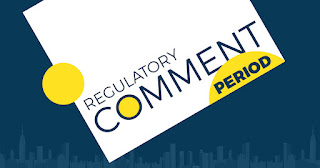Amazon recently updated its Reasonable Accommodation Policy as to employees seeking disability accommodations to work from home.
Here is an explanation of their updated policy based on Bloomberg Reports.
In a nutshell, the policy includes a more rigorous vetting process, multilevel leader review, and month-long return to the office trials.
As a result, Amazon may wind-up defending more failure-to-accommodate claims while enacting this policy update. Specifically, the Americans with Disabilities Act (ADA) requires employers to provide reasonable accommodations unless doing so would cause an undue hardship. The ADA mandates that employers engage in an interactive process, assessing requests individually in a timely manner. By implementing a more complex approval system, Amazon may be making it harder for employees with disabilities to receive the accommodations that they need, potentially violating the ADA.
First, the new process requires a complex "multilevel leader review," which could lead to significant delays before employees' requests are approved. This extended waiting period could violate the ADA's requirement to address requests for accommodations in a timely manner, which is seen as a constructive denial of the requested accommodation that makes a failure-to-accommodate lawsuit ripe for adjudication.
Additionally, the policy is problematic because it applies to both new requests and extensions of existing accommodations. Employees who have already been granted accommodations may now be required to return to the office for month-long trials to assess whether their needs are being met. This one-size-fits-all approach may not be suitable for all disabilities, and pushing employees back to the office without considering their specific needs could be seen as a failure to provide reasonable accommodation in violation of the ADA.
If employees are unable to obtain the accommodations they require and are forced to work in ways that don’t suit their disabilities, they may feel forced to leave the company. In such cases, this could be considered constructive discharge, where the work environment becomes so intolerable that employees feel they have no choice but to quit.
If Amazon's new policy fails to comply with the ADA or similar state and local laws, it could face serious legal consequences. Affected employees should file complaints with the Equal Employment Opportunity Commission (EEOC), which is a condition precedent to bringing an ADA claim. Remember, dependent on location, such a charge must be filed with EEOC in as early as 180 days (some states extend this to 300 days, but federal sector employees only have 45 days to contact an EEO Counselor to get the ball rolling).
Amazon's actions highlight the need for employers to carefully balance workplace goals with their legal obligations to uphold disability rights under federal, state, and local laws.





